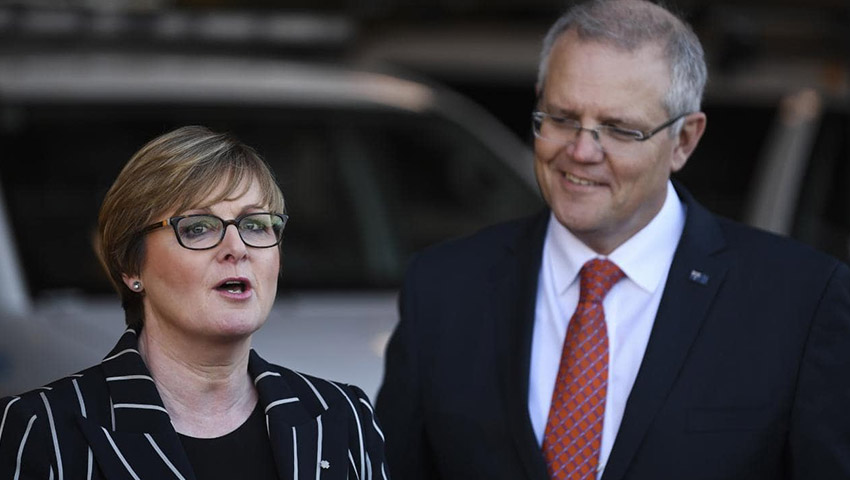A new report from the United States Studies Centre (USSC) at the University of Sydney has called on Australia’s defence and export leaders to step up their engagement with US Congress in order to strongarm the US’ National Technology and Industrial Base (NTIB) into action, which fails “to treat trusted allies differently from other partners”.
To continue reading the rest of this article, please log in.
Create free account to get unlimited news articles and more!
The NTIB is a mandated policy framework that intends to allow a defence free trade area between defence-related research and development sectors of the US, Canada, Australia and the UK, however author Brendan Thomas-Noone notes that the framework falls "well short of its goal".
"The NTIB has only managed to facilitate limited bilateral co-operation between some members," Thomas-Noone writes.
"The US defence export control regime is one of the biggest barriers to NTIB integration. Specifically, bureaucratic fragmentation, its failure to treat trusted allies differently from other partners and its leaders’ reluctance to attempt politically costly reform are significant barriers to progress."
Australia's elevation to the NTIB in 2017 was heralded as a great opportunity for both nations to further combine on their fruitful partnership, however it hasn't at all lived up to that expectation.
The report listed several key reasons for the NTIB should it work as intended, such as:
-
The defence industrial base of the US, Australia’s main source of military technology, is under stress;
-
The rise of China as a competitor to the US in industrial power and in the technologies underpinning the next wave of military modernisation is severely challenging a pillar of Canberra’s defence strategy: maintaining a regional military technological edge;
-
The rising costs of next-generation military equipment, preventing the US and Australia from buying new aircraft and naval warships in numbers that are effective; - The NTIB may be a tool for Australia in a region of growing uncertainty, adding knowledge and production in critical defence industry areas that Canberra may need sovereign control over in order to sustain military forces in times of need.
As the report said, the NTIB has the potential to become a progressive framework to address these strategic challenges, however, as Thomas-Noone noted, US congress is apparently unable to distinguish between trusted allies and other key partners.
As a result of this, "Australia and Australian industry face real and growing opportunity costs which hamper Canberra’s ability to maintain its own competitive military advantage and serve as an effective US ally in the Indo-Pacific".
What's the solution
While the "blame" for the lack of success so far from the NTIB lies at the feet of US congress, the report noted that Australia, as well as other members, need to extend the olive branch first.
This can be done by advocacy of NTIB progression on members of Congress in the House Foreign Affairs and the Senate foreign relations committees, and officials in the State Department, by pushing it home that the need to aggregate allied defence industrial capability to "retain a military-technological advantage in the Indo-Pacific should be a priority for allied officials in Washington".
The next proposed solution from the USSC report calls on Australian leaders to raise NTIB integration and prioritisation as an "industrial capability priority", saying these talks should be included in annual AUSMIN consultations.
The third and final solution offered by the USSC is the expansion of Australia and other NTIB members beyond the "exploratory work being undertaken on direct financial investment review and technology transfer to thinking about strategic initiatives with viable business cases that the policy framework can facilitate".
"The expansion of the NTIB to include Australia and the United Kingdom has laid the groundwork for larger reform and integration with allies," Thomas-Noone concludes.
"But while allies and officials within the United States can continue to press for further reform, it will ultimately take political will in Washington to push for a major overhaul of the US defence export control regime to bring it in line with the requirements of great power competition. Breaking down barriers and incentivising trusted allies with the R&D, knowledge and resources to continue working with the United States should be a critical priority."
Your thoughts
Do you think both countries should be doing more to enhance their strategic and industrial partnership? Do you agree with the USSC's report on the current status of Australia's NTIB standing?
Get in touch in the comment section below or email

 Login
Login







